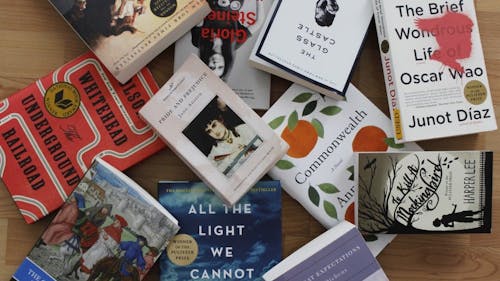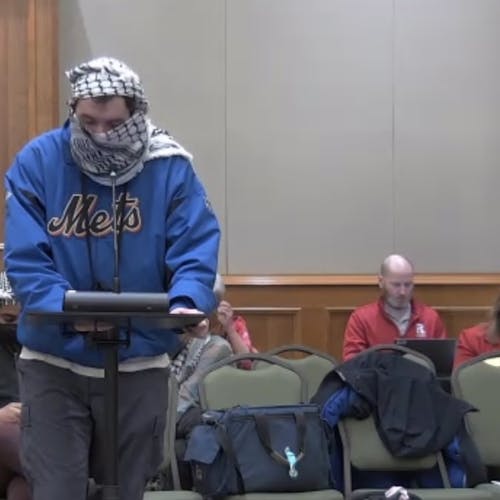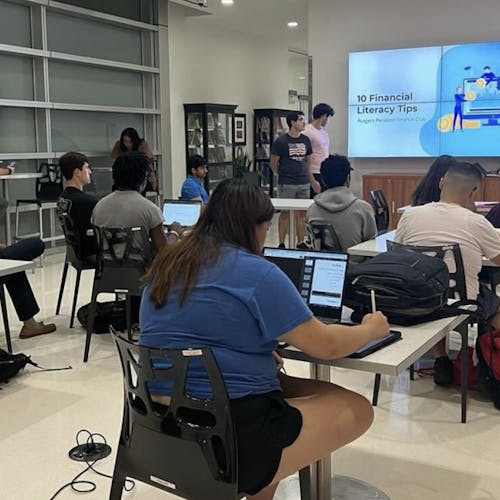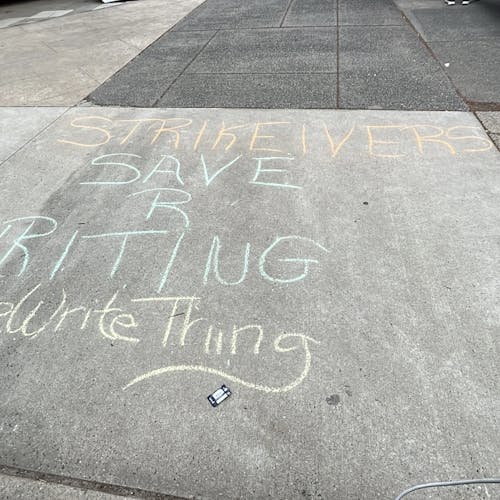On-campus book club encourages students to expand literary horizons

The READ club at Rutgers has been working avidly to increase student literacy and generate interest in personal reading.
After several years of inactivity, current President and School of Arts and Sciences senior Elisheva Rosen worked with her peers and the Rutgers Libraries to resurrect the club. Their goal is to create a place for students to explore important societal issues through the discussion of literature.
Rutgers READ is the only official book club on campus, according to their Collegiate Link webpage. The mission is to increase literacy on campus by providing students with an opportunity to expand their literary horizons.
As a hybrid between a leisure and academic club, READ holds monthly meetings where members discuss the book of the month and then votes to chose a new book to read.
“We try to choose books that fit the significance of the month we’re reading it in,” said Julianna Rossano, co-vice president and a first-year student at the School of Arts and Sciences. “For example, because Transgender Day of Remembrance is in November, this year we read a book with an LGBT romance.”
The current book, which will be discussed during the February meeting, is "Selma, 1965: The March That Changed the South" by Charles Fager, in recognition of Black History Month, Rosen said.
It is not necessary to read the book to attend the meeting and participate in discussions, Rosen said. This month’s meeting, for example, will focus on the Civil Rights Movement.
The club’s next meeting is on Tuesday, Feb. 28 at 8 p.m. in the conference room in the lower level of the Art Library on the College Avenue campus.
“We have a very eclectic taste in books,” Rosen said, citing past reads from a score of different genres and disciplines, including "Let’s Explore Diabetes with Owls", which is a collection of narrative essays by David Sedaris, "The Corpse Exhibition: And Other Stories of Iraq" by Hassan Blasim, and even poetry.
“This generation of the club is relatively new,” Rosen said.
In the past, READ was a popular club on campus, but it died out and became defunct for a few years until starting up again in 2009, Rosen said.
When Rosen began attending the club three years ago as a first-year, it had very low involvement. At the time, in order to be recognized as a club by the University, it was necessary to have at least 10 members, she said.
“When I took over the club, we not only had low membership, but we lost our meeting place because a class was scheduled in the room we had reserved,” she said.
The club originally met in the Writer’s House in Murray Hall on the College Avenue campus, but for a while after that, they met in a hallway.
In January 2014, Rosen began working as co-president with a junior who was also interested. Together, they began to build the club back up and secured their current meeting place in the Art Library, Rosen said.
Currently, the club membership has been increasing steadily each semester.
“We might have to move out of the Art Library soon if the numbers keep increasing,” Rosen said.
The READ club uses its funds allocated by the Rutgers University Student Assembly (RUSA) to buy the books at a discounted price from the Rutgers Barnes and Noble bookstore, said Michael Guastaferro, the club treasurer and a junior in the School of Environmental and Biological Sciences. The books are then distributed to the members.
After the club reads and discusses the book at its monthly meeting, they give the books back to the Rutgers community by distributing them to the recreational reading shelves at the Rutgers libraries, Rosen said.
When she became co-president in 2014, Alexander Library on the College Avenue campus was interested in starting recreational reading shelves. The Library of Science and Medicine was also interested, Rosen said, as a way to encourage non-science students to come to their library.
The recreational reading shelves are still available for students at these libraries today.
“This club is a product of student involvement,” Rossano said. “The more members we have, the more it will benefit our community.”
The leaders of READ work not only to encourage students to visit the libraries more, but also to educate them about the many resources available at the Rutgers libraries. One resource is E-ZBorrow, a system where students can request books from libraries of participating universities in the area.
In the past, READ has struggled to gain enough funding from RUSA to cover costs.
“It would be nice not to always have to justify why we’re requesting so much money for books,” Rosen said.
Every semester, READ applies to RUSA for funding. The club has had to appeal for more funding.
“They’ll say, ‘Why can’t you reuse the books?’ And we do reuse, but if we reread the same four books every year, it won’t be interesting,” Rosen said.
In the future, the club hopes to expand to planning a program during Banned Books Week, said Nain Ladak, a co-vice president and a School of Arts and Sciences first-year.
“We’d also like to have page-to-screen discussions about books that have been turned into movies, such as 'Selma, 1965: The March That Changed the South,'” she said.
According to the Concordia University website, a study by the American Library Association found a positive connection between daily personal reading habits and overall academic performance.
Reading is helpful in expanding vocabulary and ideas, she said. This year, in particular, the club welcomed in an unprecedented number of international students who were looking to improve their English through reading.
“So if you’re looking for a collective place where you can read and discuss together, we’re the only ones who provide that currently on campus,” Rosen said.
Christina Gaudino is a School of Arts and Sciences first-year student majoring in public policy. She is a contributing writer for The Daily Targum.



